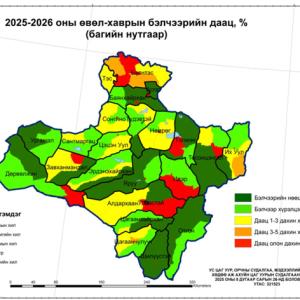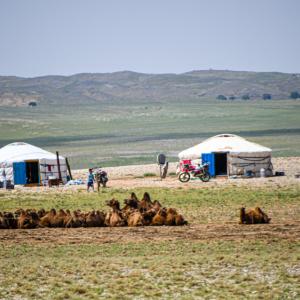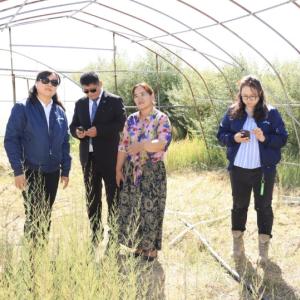Luxembourg Donates EUR 5 million for Promoting Children’s Health in Mongolia
Society
Ulaanbaatar
/MONTSAME/. The Government of the Grand Duchy of Luxembourg handed over a donation of EUR 5
million for the Prevention and Reduction of Child Rheumatic Heart Disease
in Mongolia to UNICEF Mongolia.
Rheumatism is the most commonly acquired heart disease globally in people under the age of 25. It starts as a sore throat from a bacterium called Streptococcus
pyogenes (group A streptococcus) which can spread easily from one person to
another. Every year, the disease claims 288,348 lives worldwide. The earlier it
is detected; the earlier action is taken which leads to a better health
outcome. According to 10-year morbidity data (2011-2021), children’s
morbidity accounted for 29.1 percent of the total morbidity in Mongolia. The
report, issued by the Center for Health Development in 2022, stated
that respiratory tract infections had been the most common among children
under 15.
“I would like to express my deepest gratitude to the Government
of Luxembourg on behalf of UNICEF Mongolia for its generous contribution made
in support of the health of the most vulnerable children in Mongolia. Investing in
the Prevention and Reduction of Child Rheumatic Heart Disease is one of the
most cost-effective interventions to ensure a reduction in Child congenital
diseases” says Evariste Kouassi-Komlan, UNICEF Representative in
Mongolia.
UNICEF Mongolia’s Rheumatic prevention program aims to screen
girls and boys, including adolescents, at an early stage for Rheumatic
Heart Disease and streptococcus pharyngitis with the help of
medical workers who are capable of using existing equipment to diagnose child
heart disease and other non-communicable diseases.
Additionally, the
program will create an enabling environment for antenatal care and early
infancy and adolescents’ health, as well as train doctors, nurses, and health
workers for an improved capacity in diagnosing and using existing equipment for
early screening of congenital heart disease (CHD) and other
non-communicable diseases among infant children. Finally, the program will
promote healthy lifestyles including good hygiene through
targeted awareness-raising campaigns.

 Улаанбаатар
Улаанбаатар


















































































